
News


A recent case-control study found that continuous photohydrolysis disinfection significantly reduced environmental bioburden, MDRO acquisition, COVID-19 cases, and hospital transfers in a long-term care facility, without adding staffing demands. The findings highlight the role of continuous air and surface disinfection as a complementary strategy to manual cleaning in addressing antimicrobial resistance and infection risk in LTC settings.

Shazia Irum, MSC, MBA, RN, CIC, CPHQ, FAPIC, a new member of Infection Control Today®’s (ICT®’s) Editorial Advisory Board, answers a quick question about emerging respiratory viruses.

IPC professionals are on the front lines of translating vaccine policy into practice. Share your perspective on how recent CDC vaccine schedule updates are affecting communication, confidence, and infection prevention efforts in your facility. This brief, anonymous survey will help highlight gaps, needs, and opportunities to better support the IPC community.

Two emerging animal-origin viruses, influenza D and canine coronavirus HuPn-2018, are quietly circulating and largely missed by routine diagnostics. Experts warn that without stronger surveillance, data sharing, and preparedness, these pathogens could become the next major respiratory threat.

Dialysis patients face some of the highest infection risks in health care. In this Q&A, nurse practitioner leader Octavia “Tavi” Schlueter, MSN, RN, CPNP-PC, PMHS, breaks down bloodstream infection risks, vascular access best practices, and how IPC teams can support dialysis staff through practical, workflow-based education.

“Nothing has changed,” said Jeffrey Goad, PharmD, MPH, president of the National Foundation for Infectious Diseases. “The evidence is clear that COVID-19 vaccines are safe and effective, and COVID-19 is not done with us.”

Cold, flu, RSV, and COVID-19 are still circulating, but many people have stopped paying attention. This article breaks down how to recognize the differences between common respiratory illnesses, explains overlapping symptoms, and outlines practical steps health care and dental professionals can take to reduce transmission. From hand hygiene and masking to staying home when sick and vaccination awareness, the piece reinforces why everyday prevention still matters during respiratory virus season.

In this complete interview with Colleen Becker, PhD, MSN, RN, CCRN-K, senior director of perioperative education for AORN, strong infection prevention practices are grounded in trust, communication, and psychological safety within the operating room team.
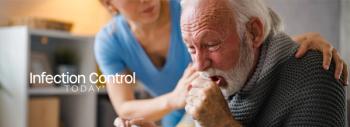

Infection prevention professionals are facing a critical breaking point. New survey data reveal widespread understaffing, rising burnout, and systemic undervaluation that threaten patient safety, outbreak readiness, and health system resilience.

Continuous, evidence-based education builds confidence, competence, and safer perioperative care. Colleen Becker, PhD, MSN, RN, CCRN-K, senior director of perioperative education for AORN, explains how inclusive learning approaches and career-long education reinforce infection prevention excellence while supporting professional growth and resilience.
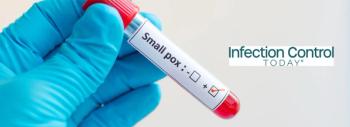
The global health community mourns the loss of William Foege, MD, MPH, a visionary leader whose work helped eradicate smallpox and redefine outbreak response worldwide. His legacy of surveillance, community engagement, and ethical leadership continues to shape infection prevention, vaccination strategy, and global public health for generations to come.
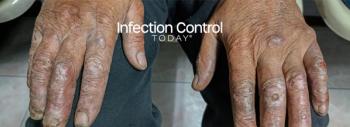
Leprosy cases have dropped dramatically, but misconceptions persist. An infectious disease expert explains what today’s infection prevention teams need to know about risk, transmission, and why stigma still matters.

Carbapenem-resistant organisms don’t stop at borders. Experts from Johns Hopkins and Ohio State share how strengthening lab capacity and foundational infection prevention practices helped reduce transmission in Ethiopian and Indian hospitals.

When inclusivity breaks down in the OR, patient safety is at risk. In this interview with Infection Control Today®, Colleen Becker, PhD, MSN, RN, CCRN-K, senior director of perioperative education for AORN, explains how perioperative leaders can use education, empathy, and patient-centered storytelling to address inclusivity challenges, strengthen team culture, and support safer surgical care.
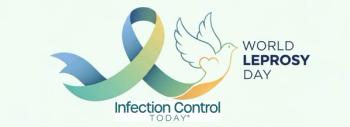
Leprosy remains rare, curable, and widely misunderstood. In this World Leprosy Day interview, infectious disease expert Matthew Pullen, MD, breaks down current epidemiology, transmission risk, and what IPC professionals need to know to respond with evidence-based care—not fear.
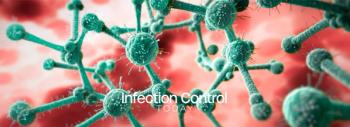

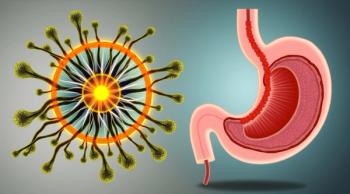

Inclusive perioperative teams are safer teams. In this fourth installment of an interview with Infection Control Today, Colleen Becker, PhD, MSN, RN, CCRN-K, explains how teams that reflect the communities they serve improve communication, trust, and infection prevention across the perioperative continuum. When staff feel heard and valued, risks are identified earlier and patient safety is strengthened.

Carbapenemase-producing Enterobacterales (CPE) are increasing nationwide, with harder-to-treat NDM strains reshaping the resistance landscape. In this Q&A, Lucas Schulz, PharmD, explains why rapid diagnostics and stewardship are critical to protecting patients and preserving last-line antibiotics.

Creating a culture where nurses feel safe speaking up is essential to proactive infection prevention. In this installment of an interview with Infection Control Today, Colleen Becker, PhD, MSN, RN, CCRN-K, explains how consistent communication, shared data, and team-driven goals help reduce burnout, strengthen accountability, and ensure infection risks are addressed early with patient safety at the center.


Trust and psychological safety are critical to infection prevention in the operating room. In this installment of her interview with Infection Control Today®, Colleen Becker, PhD, MSN, RN, CCRN-K, senior director of perioperative education for Association of periOperative Registered Nurses, explains how leadership that fosters openness and shared accountability empowers perioperative teams to speak up, identify risks early, and strengthen adherence to infection prevention practices.


In this physician-authored analysis, a December 2025 CMS policy change ending mandatory childhood vaccine reporting is examined through a clinical and public health lens. The article warns that reduced surveillance, weakened federal recommendations, and increased reliance on shared decision making without clinical equipoise could accelerate declining vaccination rates, undermine outbreak response, and leave families without clear, evidence-based guidance.

Maternal influenza and Tdap vaccination during pregnancy were linked to significantly fewer hospitalizations and emergency department visits for flu and pertussis among infants younger than six months. New population-based data reinforce maternal immunization as a critical infection prevention strategy and highlight ongoing gaps in vaccine uptake during pregnancy.

A recent CMS policy change means states will no longer be required to report childhood vaccination data, raising serious concerns for infection prevention and control professionals. Without reliable immunization reporting, IPC teams may lose critical visibility into vaccine coverage, complicating outbreak prevention, policy decisions, and public trust at a time of rising vaccine hesitancy and declining community immunity.

Following holiday travel and gatherings, pediatric flu cases are rising rapidly across the US, with CDC data showing elevated flu activity and increased doctor visits. Experts urge parents and schools to monitor for sudden-onset symptoms, follow strict stay-home guidance, and reinforce household containment, vaccination, and respiratory hygiene to reduce spread as children return to classrooms.
